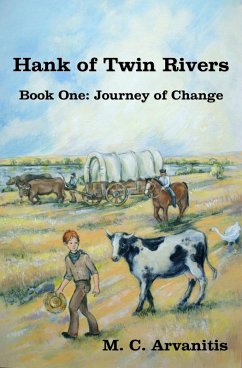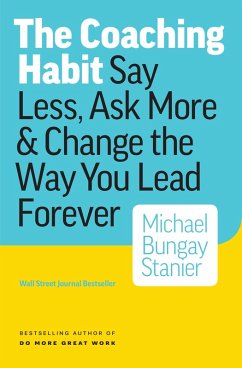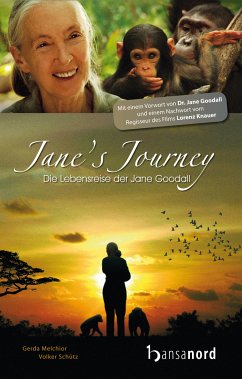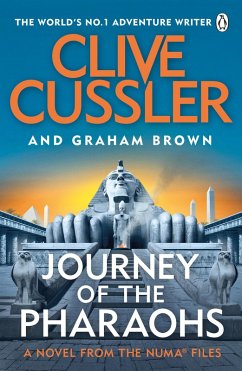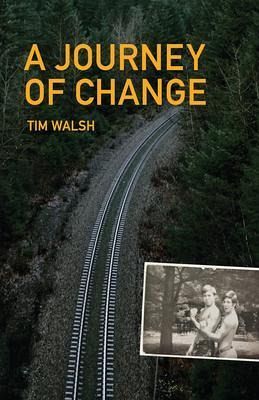
A Journey of Change (eBook, ePUB)

PAYBACK Punkte
2 °P sammeln!
The coal train slowly crawled out of Cleveland's freight yard at 2 in the morning, headed northeast along Lake Erie, toward Erie, Pennsylvania.As the train gained momentum, Mike and I had barely settled down before we realized we'd made a major mistake. The rail car we boarded was an open hopper carrying 250,000 pounds of coal. It was soon running 80 miles an hour, and we were battling gale-force winds off the lake. Our body temperatures quickly dropped. Even our Levi jackets couldn't keep us warm. We had to find a safer and warmer spot on the train.When we tried to stand up, the wind knocked ...
The coal train slowly crawled out of Cleveland's freight yard at 2 in the morning, headed northeast along Lake Erie, toward Erie, Pennsylvania.
As the train gained momentum, Mike and I had barely settled down before we realized we'd made a major mistake. The rail car we boarded was an open hopper carrying 250,000 pounds of coal. It was soon running 80 miles an hour, and we were battling gale-force winds off the lake. Our body temperatures quickly dropped. Even our Levi jackets couldn't keep us warm. We had to find a safer and warmer spot on the train.
When we tried to stand up, the wind knocked us back. It was challenging to keep our footing while trying to balance on the coal. We inched over to the front of the coal car to see if we could somehow clear the 4-foot gap to the engine. But the train's speed and the unsafe conditions, especially in the dark, forced us to stay put.
Mike reached into his backpack to get his rain poncho. We wrapped it around us, grabbed onto the grommets, and placed our backs to the wind. The poncho quickly became like a sail on the Pequod. We had to devise another tactic.
We started digging. We scooped up the baseball-size pieces of coal with our hands and put them in front of us to build a windbreak. The more we dug, the more the surrounding coal fell into the vacant hole. Like digging in sand at the beach. The hole kept getting filled back. We decided to use the poncho to help hold the coal back and allow us a little escape from the wind. Mike and I were now completely covered in coal dust. We continued our shaking and trembling. The only light was coming from the engine in front of us, and that was very little. I thought we might become the first people to freeze to death in June. The first steps of hypothermia are shivering and mental confusion, which we had both. We were 800 miles from home, traveling 80 miles an hour, on top of a coal hopper, watching the sun bring a sliver of light to the night.
As the train gained momentum, Mike and I had barely settled down before we realized we'd made a major mistake. The rail car we boarded was an open hopper carrying 250,000 pounds of coal. It was soon running 80 miles an hour, and we were battling gale-force winds off the lake. Our body temperatures quickly dropped. Even our Levi jackets couldn't keep us warm. We had to find a safer and warmer spot on the train.
When we tried to stand up, the wind knocked us back. It was challenging to keep our footing while trying to balance on the coal. We inched over to the front of the coal car to see if we could somehow clear the 4-foot gap to the engine. But the train's speed and the unsafe conditions, especially in the dark, forced us to stay put.
Mike reached into his backpack to get his rain poncho. We wrapped it around us, grabbed onto the grommets, and placed our backs to the wind. The poncho quickly became like a sail on the Pequod. We had to devise another tactic.
We started digging. We scooped up the baseball-size pieces of coal with our hands and put them in front of us to build a windbreak. The more we dug, the more the surrounding coal fell into the vacant hole. Like digging in sand at the beach. The hole kept getting filled back. We decided to use the poncho to help hold the coal back and allow us a little escape from the wind. Mike and I were now completely covered in coal dust. We continued our shaking and trembling. The only light was coming from the engine in front of us, and that was very little. I thought we might become the first people to freeze to death in June. The first steps of hypothermia are shivering and mental confusion, which we had both. We were 800 miles from home, traveling 80 miles an hour, on top of a coal hopper, watching the sun bring a sliver of light to the night.
Dieser Download kann aus rechtlichen Gründen nur mit Rechnungsadresse in A, D ausgeliefert werden.





